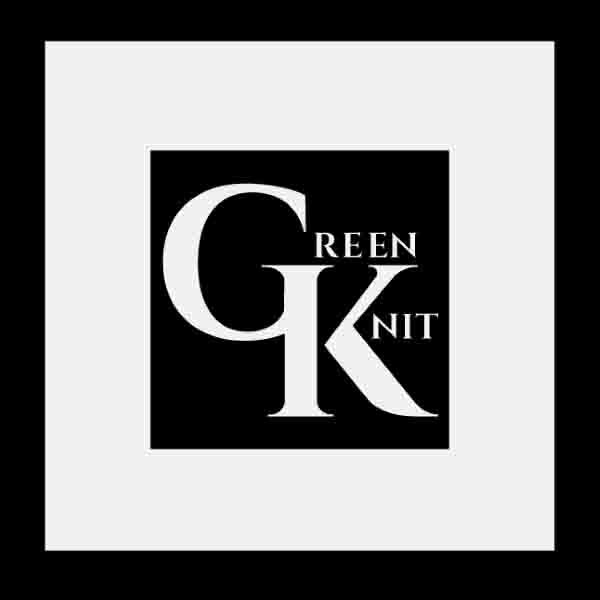Why do sustainable solutions in fashion matter?
The manufacturing of fashion items, specifically handbags, has a considerable environmental impact. At GREEN KNIT, we are committed to tackling these challenges and spearheading the journey toward a more sustainable future. Below are some facts outlining the adverse effects of traditional fashion production:
1. ENVIRONMENTAL IMPACT
As per Greenpeace and UNFCCC, the fashion sector contributes to around 10% of the world's carbon dioxide (CO2) emissions and 20% of global wastewater. The extraction of raw materials, production processes, and transportation are key contributors to these emissions and pollution.
2. WASTE GENERATION
Surprisingly, just 1% of textiles are repurposed into fabrics, as indicated by research from the Ellen MacArthur Foundation. According to McKinsey & Company, the fashion industry produces an alarming volume of waste, with 30% of materials discarded during production and 40% of products becoming obsolete or disposed of.
3. LEATHER PRODUCTION
Traditional leather manufacturing has a substantial environmental footprint, demanding extensive water resources, contributing to deforestation, and releasing harmful chemicals into the environment. According to Collective Fashion Justice, the average leather handbag tote is responsible for emitting approximately 100.5 kg of CO2 and necessitates around 17 thousand liters of water during its production.
4. FAST FASHION CULTURE
The emergence of fast fashion has resulted in increased consumption and disposal of clothing and accessories. This unsustainable cycle perpetuates overuse of resources and amplifies environmental and social challenges.
What do we do to be part of the solution?
At GREEN KNIT, we aspire to contribute to the solution. While we cannot claim to be perfect, our dedication lies in creating a positive impact, one bag at a time. Here's how we're actively taking steps:
1. SUSTAINABLE MATERIALS
We utilize 100% recycled nylon yarn sourced from post-production waste. Our current objective is to transition to recycled yarn derived from post-consumer waste, such as old fishing nets and carpets. Through repurposing these materials, we actively diminish the need for new resources and prevent them from contributing to landfills or ocean pollution. The production of recycled nylon results in approximately nine times fewer CO2 emissions compared to virgin nylon production.
2. MINIMAL WASTE PRODUCTION
Our revolutionary 3D knitting technique allows us to manufacture handbags with minimal waste. In contrast to traditional cut-and-sew methods, which typically result in 30% of material cutouts, our bags are directly knitted from the yarn. This approach ensures a production process that generates nearly zero waste.
3. CIRCULAR DESIGN
Our bag designs embody a circular mindset. The incorporation of 100% recycled nylon yarn and a monomaterial approach facilitates seamless recycling. We envision implementing a take-back system, potentially transforming materials back into yarn for future bag production. This closed-loop approach not only minimizes waste but also maximizes resource efficiency.
4. ETHICAL PRACTICES
Transparency and ethical manufacturing practices are at the forefront of our priorities. Our handbags are crafted with the utmost care and high-quality workmanship in Austria, within the European Union, adhering to stringent environmental and labor standards. The highly automated production process is powered mainly by electricity generated on-site, sourced from solar panels and a hydroelectric power plant.
FAQs?
1.WHY NYLON?
While having a potential to be infinitely recycled back to fiber without quality loss (in contrast to widely used ePET), currently only 1,9% (!) of polyamide fibers worldwide get recycled. We want to be part of the solution and support this material’s circularity come into daily-life reality.
2. WHY NO ORGANIC YARN?
We strongly believe the use of limited organic resources should be used wisely, e.g. for items worn directly on skin or washed regularly.
3. KNITTING ITSELF IS NOT NEW. SO WHAT IS IT?
It is Worldwide unique use of 3D-knitting on such a full scope in bags: creating whole bag’s body in just one (!) piece directly in the right shape with all integrated pockets and following also monomaterial approach using only nylon yarn (eliminating use of elastan even in the pockets to 0). E.g. this internal organizer of the London tote bag has 12 pockets while only having just 2 sewing lines!
4. CAN THE BAGS BE RECYCLYED?
While we aspire to enable fiber-to-fiber recycling, at the current stage we cannot offer yet the take-back-option and ensure the bags are recycled at the end of their life cycle. Yet, we are closely monitoring the developments on the nylon recycling market and would like to offer this possibility in future in collaboration with a recycling facility. It all though starts with the design. We have integrated the monomaterial approach in the heart of our bag designs already today - to inspire the circular future of fashion.
When you choose GREEN KNIT, you're making a conscious decision to support sustainable fashion.
Real transformation requires time, but by embracing sustainability and questioning the current norms, together we can mold a fashion industry that prioritizes both style and environmental responsibility.
